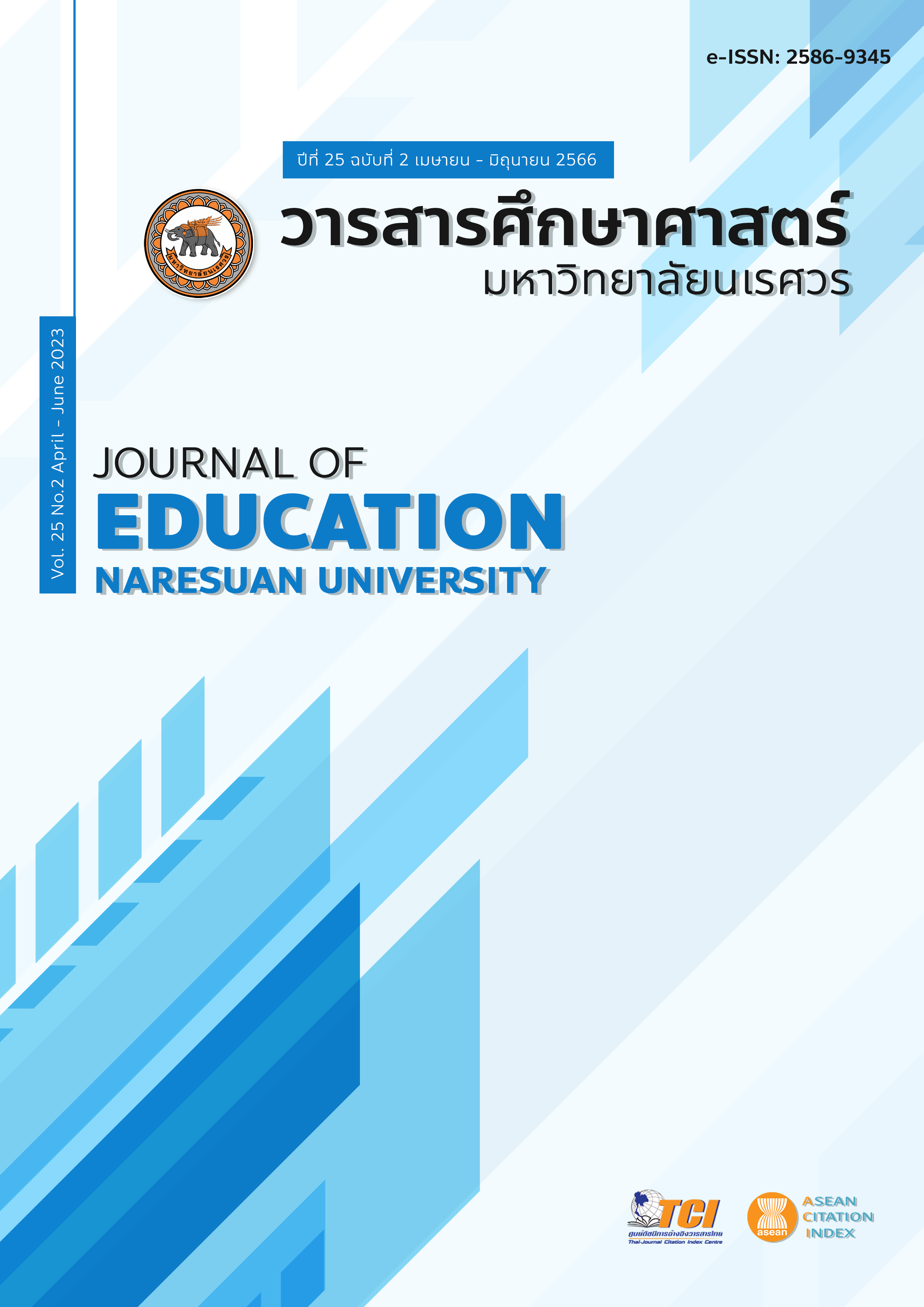THE INTEGRATED INTERDISCIPLINARY LEARNING MANAGEMENT MODEL FOR NEW GENERATION TEACHERS IN DEVELOPING THAI CHILDREN IN THE 4.0 ERA FOR STUDENTS IN GRADE 4-6 รูปแบบการจัดการเรียนรู้บูรณาการสหวิชาการสำหรับครูยุคใหม่สร้างเด็กไทย 4.0 สำหรับนักเรียนช่วงชั้นที่ 2
Main Article Content
Abstract
The objectives of this research were: 1) to develop the integrated interdisciplinary learning management model for students in grade 4-6 students, 2) to experiment on the integrated interdisciplinary learning management model for students in grade 4-6, and 3) to evaluate the integrated interdisciplinary learning management model for students in grade 4-6. The researcher was designed as followed: during phase I, the researcher developed the integrated interdisciplinary learning management model by recruiting 10 teachers to receive the practical training and co-develop the model. Then, the quality of the newly-constructed model was evaluated by experts during Phase II, which is the experimental stage of the integrated interdisciplinary learning management model. The samples were 28 students in Prathomsuksa 4 at Nakhon Sawan Rajabhat University Demonstration school. They were obtained by using cluster random sampling technique. The experiment took 10 weeks. During Phase III the evaluation of the integrated interdisciplinary learning management model was conducted based on the adapted the evaluation standard criteris of the Joint Committee on Standards for Education Criteria involving 5 stakeholders. The research results showed that; 1) the quality of designing the integrated interdisciplinary learning management model for grade 4-6 students in Animation based on the Problem-based learning for 10 weeks and the evaluation of the integrated interdisciplinary learning management model were on the highest level. 2) The students’ achievement score and creative problem solving ability level were statistical significantly higher than 80 percentage at the 0.01 level. 3) The integrated interdisciplinary learning management model had high quality.
Article Details

This work is licensed under a Creative Commons Attribution-NonCommercial-NoDerivatives 4.0 International License.
The owner of the article does not copy or violate any of its copyright. If any copyright infringement occurs or prosecution, in any case, the Editorial Board is not involved in all the rights to the owner of the article to be performed.
References
Bunyaklump, S. (2003). Guideline for management of integrated student centered learning plans. Bangkok: Modern Academic Centre. [in Thai]
Charoenwongsak, K. (2007). Bangkok healthy city (2nd ed.). Bangkok: Success Media. [in Thai]
Heakrathok, W. (2013). The development of the problem solving skill and science achievement using problem based learning on electrical circuit of prathomsuksa 6 (Master thesis). Maha Sarakham: Mahasarakham University. [in Thai]
Jareonsettasin, T. (2018). Thai Education 4.0: In the Context of Educational Management for Sustainable Development. Bangkok: Vayupak Convention Center, Centra by Centara Government Complex Hotel Chaeng Watthana. [in Thai]
Jittriprasert, C. (2000). Develop quality with creativity (2nd ed.). Nonthaburi: Healthcare Accreditation Institute. [in Thai]
Khammani, T. (2012). Science of teaching pedagogy: Knowledge for efficient learning process management (16th ed.). Bangkok: Chulalongkorn University Press. [in Thai]
Laowreandee, W. (2013). Science of teaching supervision and coaching: Professional development theory, strategy to practice (12th ed.). Nakhon Pathom: Silpakorn University Printinghouse, Sanam Chandra Palace Campus. [in Thai]
Leary, H. M. (2012). Self-directed learning in problem-based learning versus traditional lecture-based learning: A Meta-analysis (Doctoral dissertation). Utah: Utah State University.
Leman, V., & Burcin, A. (2007). Problem-based learning in an eleventh grade chemistry class: Factors affecting cell potential. Research in Science & Technological Education, 25(3), 351-369. https://doi.org/10.1080/02635140701535299
MCKinley, K. (2012). Using problem based learning and guided inquiry in a high school acid-based chemistry unit (Doctoral dissertation). Michigan: Michigan State University.
Namdech, N. (2015). Comparisons of learning achievement and problem solving in science force and motion science department of matthayomsuksa 3 between using problem-based learning and the conventional approach on addition (Master thesis). Chaiyaphum: Chaiyaphum Rajabhat University. [in Thai]
Panawong, S. (2016). The development of learning activities for moderate class more knowledge by school-based management. Nakhon Sawan: Nakhon Sawan Rajabhat University. [in Thai]
Panawong, S. (2018). Learning measurement and evaluation. Nakhon Sawan: Nakhon Sawan Rajabhat University. [in Thai]
Panawong, S. (2019). Classroom action research. Nakhon Sawan: Nakhon Sawan Rajabhat University. [in Thai]
Poompachati, P. (2009). The development of creative problem solving experience based model for Preschool children (Doctoral dissertation). Nakhon Pathom: Silpakorn University. [in Thai]
Satawut, N. (2004). Learning management which start from learners. Bangkok: Tarnwichakarn. [in Thai]
Wiboonat, T. (2014). Comparisons of creative problem solving and learning achievement of mattayomsueksa 5 students who learned using the problem-based learning with project-based learning a conventional learning approaches (Master thesis). Maha Sarakham: Mahasarakham University. [in Thai]


